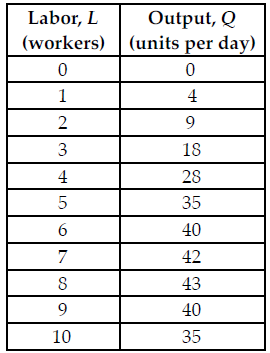The story Ottenheimer describes, told by blues musician Cousin Joe told about his encounter with a police officer in Mississippi illustrates the idea that
a. we are trapped within our frames.
b. a speaker can shift the frame of an encounter to accomplish a goal.
c. frames remain unchanged despite the passage of time.
d. it is always a mistake to tell a joke to a police officer.
B
You might also like to view...
Under apartheid in South Africa, the term "coloreds" referred to individuals of mixed __________ descent
A. Spanish and Portuguese B. African and European C. Bantu and Zulu D. Protestant and Catholic
Compare and contrast the attitude of ethnocentrism and glorification of other cultures. How can an awareness of these conflicting attitudes lead to more reliable anthropological data?
What will be an ideal response?
Refer to the table below. What is the marginal return to labor from increasing employment from 7 to 8 workers?

A) -1 B) 8 C) 7 D) 1
Economic anthropologists have been concerned with two main questions, one focusing on systems of human behavior and the other on the individuals who participate in those systems. The first question is: How are production, distribution, and consumption organized in different societies? The second question is:
A. Why has the myth of the profit-maximizing individual been so pervasive, despite evidence to the contrary? B. What are the best ways to convince individuals in funding agencies of the value of ethnographic knowledge in the realm of economics? C. What encourages overconsumption in Western economies? D. What motivates people in different cultures to produce, distribute or exchange, and consume? E. What has been the impact of globalization at the level of individuals?